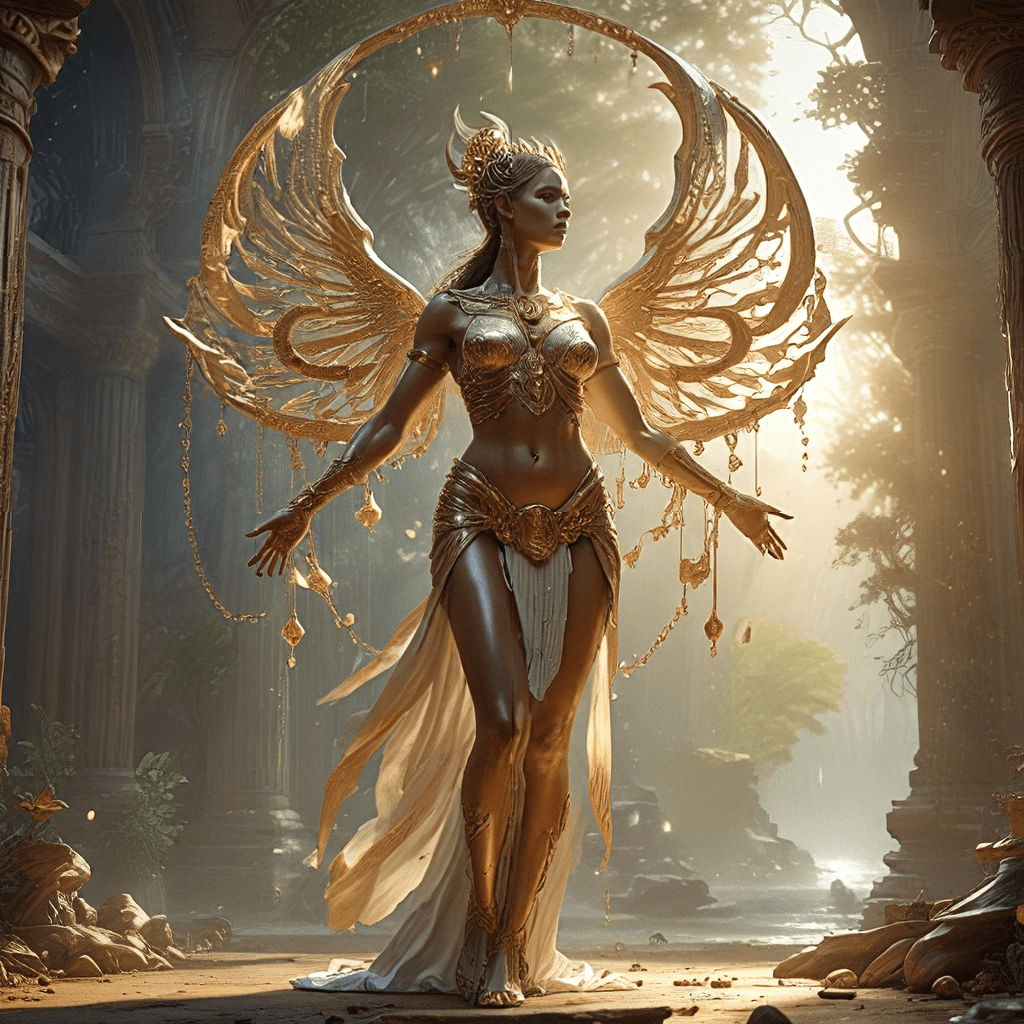The First Breath: The Gift of Life in the Egyptian Creation Myth
In the rich tapestry of ancient Egyptian mythology, the concept of breath holds a profound significance. It is inextricably linked to the very act of creation, the essence of life, and the journey into the afterlife. The Egyptian creation myth, with its captivating story of Atum, the self-created god, provides a fascinating glimpse into the cosmic origins of existence and the vital role breath played in shaping the world.
1. The Primordial Chaos: A State of Nothingness
Before the dawn of creation, there was only Nun, a vast, formless, and chaotic expanse of nothingness. This primordial state represented an abyss of pure potential, devoid of life, light, or any defined form. It was a realm where the elements of existence were yet to be separated and organized.
2. The Emergence of Atum: The Self-Created God
From the depths of Nun, Atum, the self-created god, emerged. He was the first being to exist, the source of all creation. Atum arose from the primordial waters, embodying the very essence of existence. The Egyptian creation myth paints a picture of Atum as a solitary entity, a self-sufficient source of life and order in a chaotic realm.
3. The Act of Creation: From Nun to Form
The act of creation began with Atum’s self-identification, his recognition of his own being. The Egyptians believed that this act of self-awareness was the catalyst for the universe to come into existence. As Atum began to understand his own nature, the primordial darkness of Nun started to give way to form and structure.
4. The Significance of Atum’s Breath
The Egyptian creation myth emphasizes the centrality of breath in the process of creation. Atum’s first act, after emerging from Nun, was to breathe life into the universe. He exhaled, and from his breath, Shu, the god of air, emerged. This breath symbolized the introduction of life-giving force into the formless void. The act of breathing was not just a physical process but a divine act of creation.
5. The Birth of Shu and Tefnut: Air and Moisture
Shu, representing air and space, was the embodiment of the life-giving power of Atum’s breath. Simultaneously, Atum also exhaled Tefnut, the goddess of moisture, symbolizing the essential element of water for life. These two deities, born from Atum’s breath, were the first manifestations of order and form within the chaotic expanse of Nun.
6. The Creation of the Cosmos: From Breath to Order
The emergence of Shu and Tefnut marked the beginning of the universe’s organization. Shu, as the god of air, provided separation and structure, while Tefnut, as the goddess of moisture, brought the necessary element for life to flourish. The Egyptians believed that these two deities, born from Atum’s breath, were the foundation upon which the entire cosmos was built.
7. The Importance of Air and Breath in Egyptian Life
The act of breathing was central to ancient Egyptian life. The Egyptians believed that breath, the “ka,” was the animating force that gave life to all beings. They saw breath as a vital connection between the physical and spiritual realms. The air they breathed was seen as imbued with divine energy, sustaining life and connecting them to the divine.
8. The Role of Breath in the Afterlife
In ancient Egyptian beliefs, the act of breathing played a critical role in the afterlife. After death, the soul (ba) was believed to travel to the underworld and be judged. Those who were found worthy would be granted eternal life. The breath was seen as a vital component of the soul, carrying the essence of the individual into the afterlife.
9. The Legacy of the First Breath: A Timeless Symbol
The creation myth’s emphasis on the first breath as the source of life and order has left a lasting impact on Egyptian culture. The breath, as a symbol of life, was interwoven into every aspect of Egyptian life, from religious rituals to everyday practices. It represented the connection between the physical and spiritual realms, as well as the enduring power of creation.
10. The Enduring Power of the Creation Myth
The Egyptian creation myth offers a unique perspective on the origins of the universe and the essential nature of life. It underscores the power of breath as a source of life and the importance of order, structure, and divine creation in a chaotic world. This myth continues to resonate with modern audiences, reminding us of the interconnectedness of all things and the divine spark within each of us.



